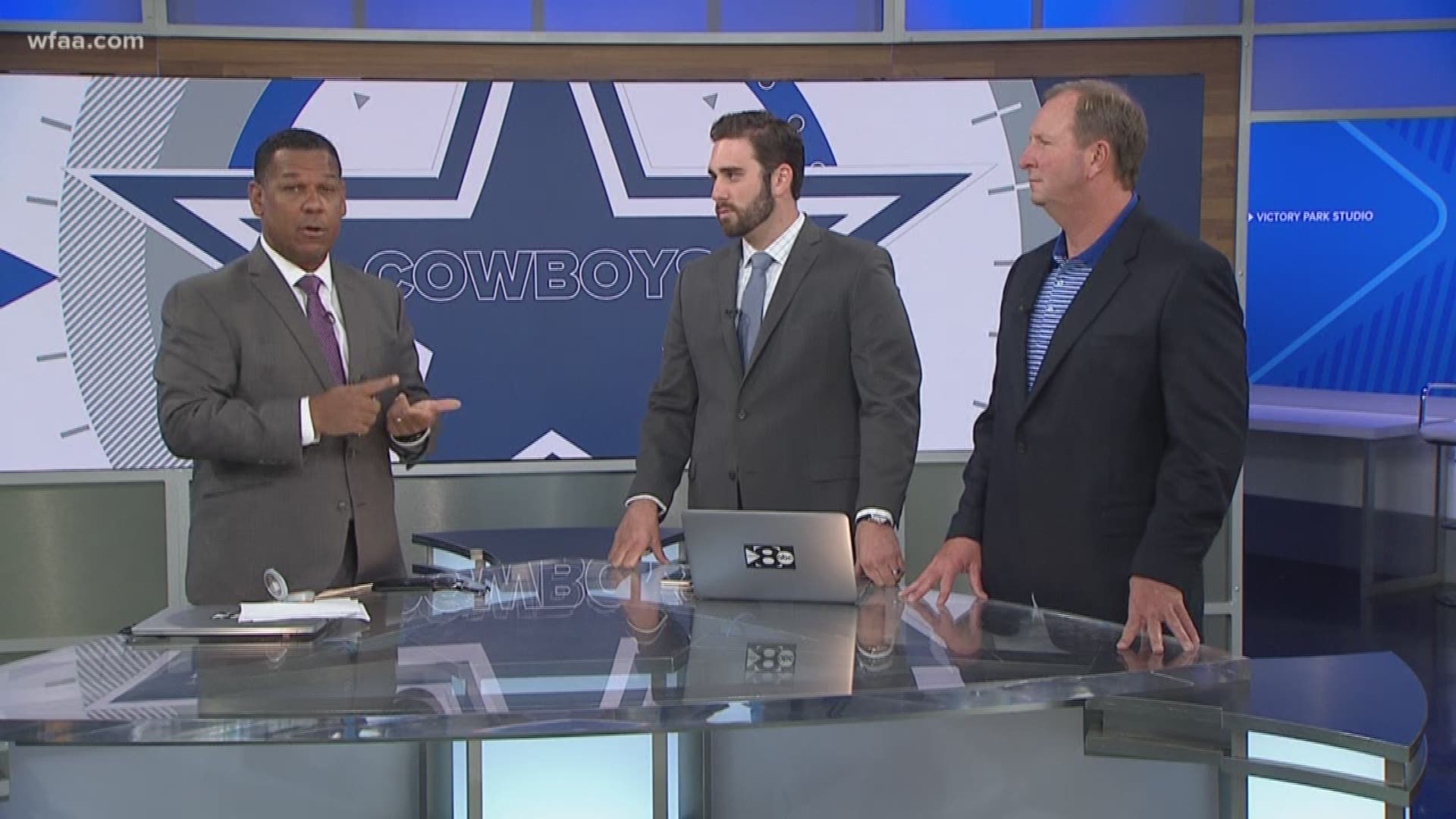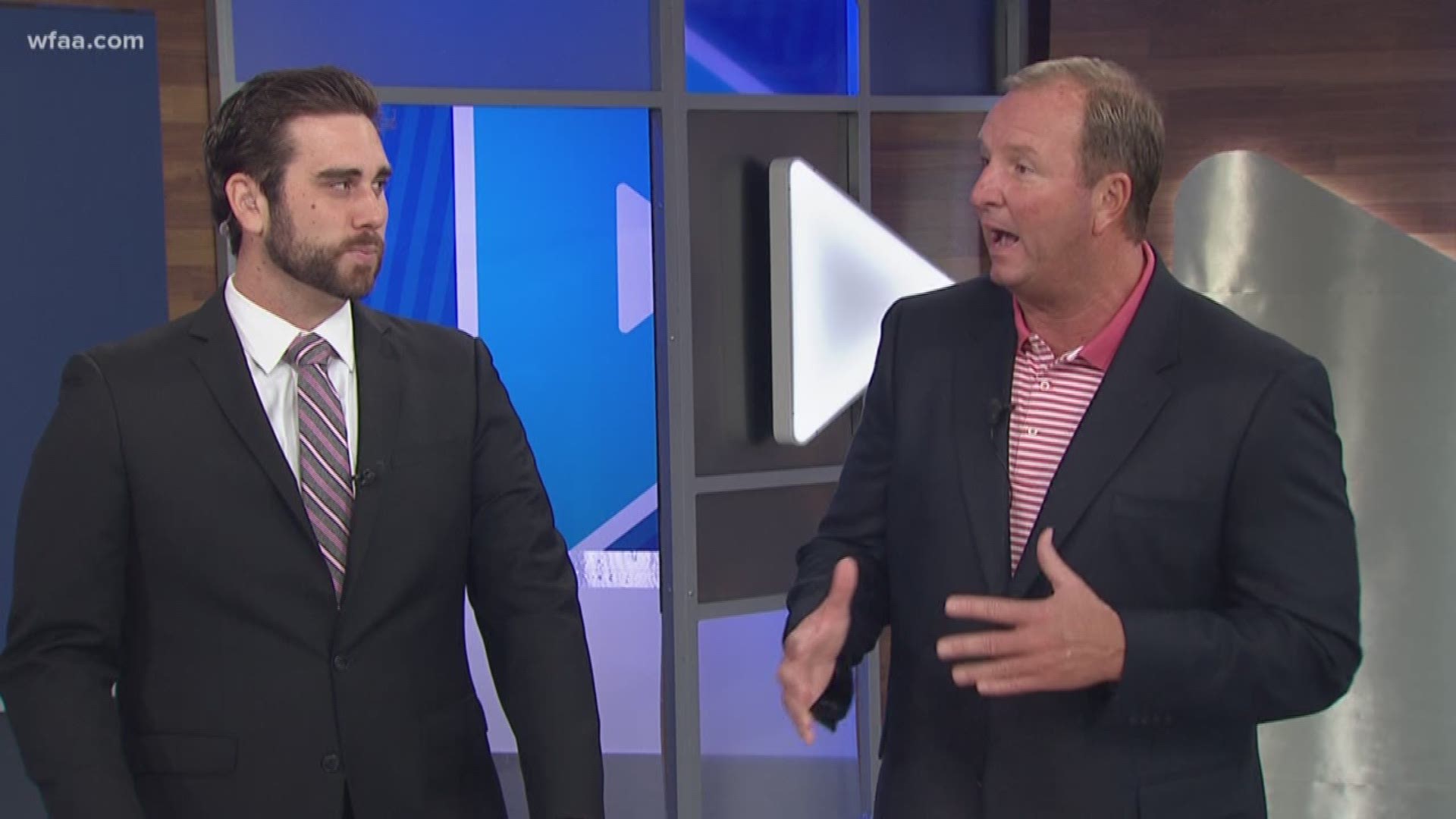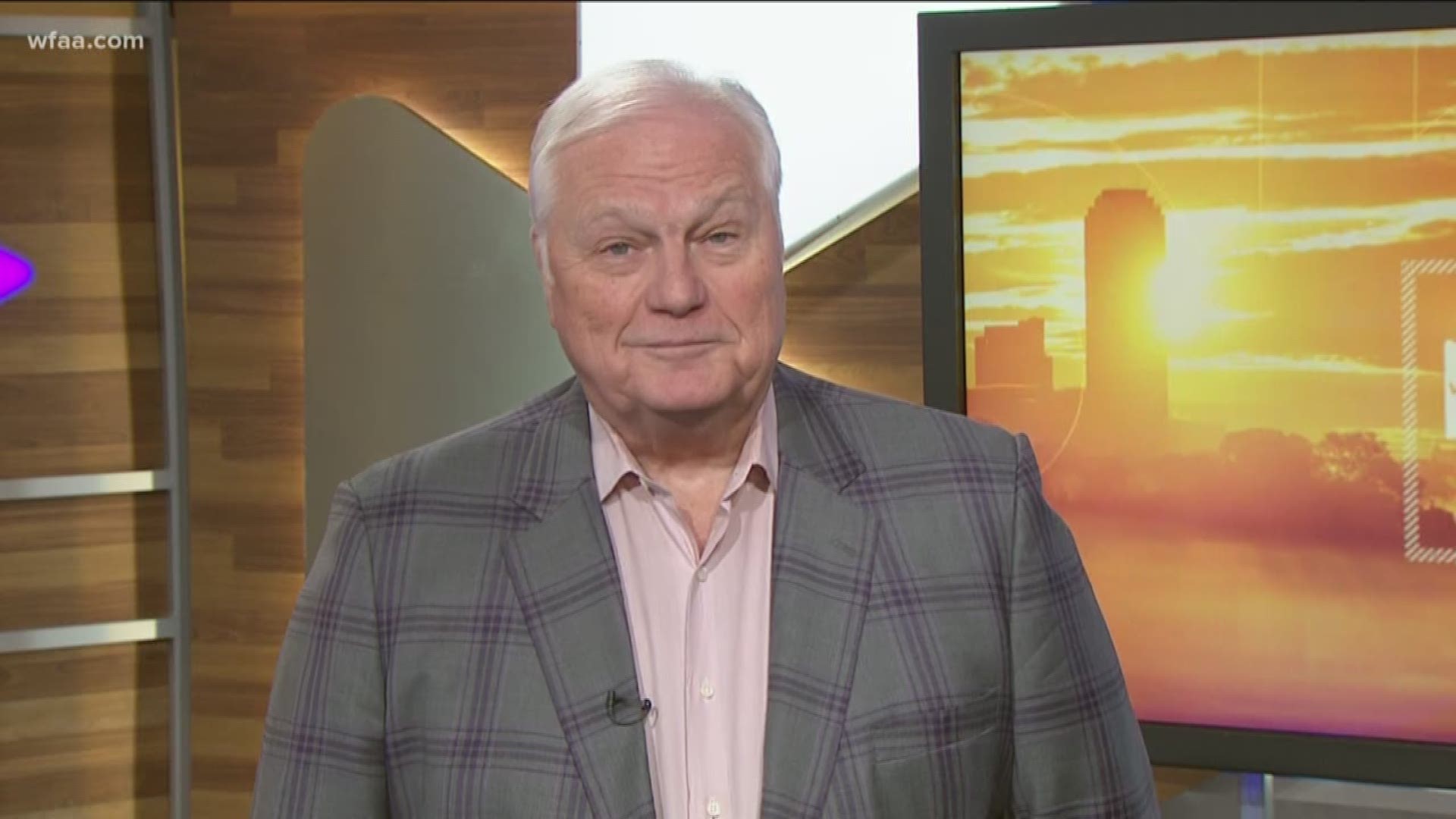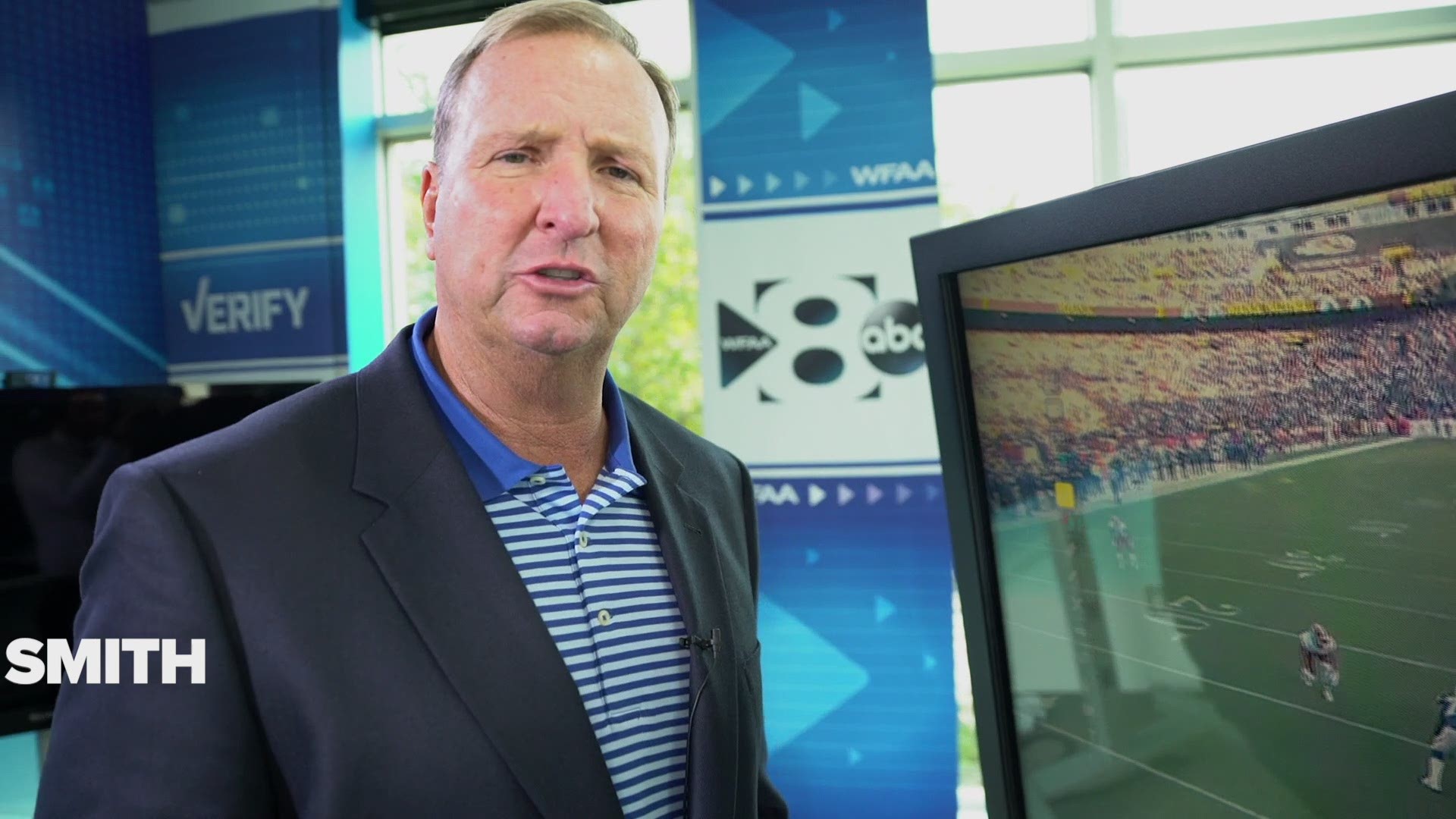DALLAS — It's October. Stop me if you've heard this plot for a Halloween horror story: team that thinks it can make the playoffs deals a first-round pick for a wide receiver.
Well, that is the nightmare every Cowboys fan is reliving after the club dealt a first-rounder to the Oakland Raiders for wideout Amari Cooper. It brings to mind the fact the Cowboys dealt two first-round picks for Seattle Seahawks receiver Joey Galloway in the 2000 off-season and a first, third, and sixth round pick for Detroit Lions wideout Roy Williams midway through the 2008 season. Neither receiver made a Pro Bowl for Dallas and neither receiver reached the 1,000 yards receiving plateau in their combined seven seasons with the team.
What really scares Cowboys fans more than anything about the deal for Cooper is the first-round pick. In the Galloway trade, those '00 and '01 first-round picks turned into running back Shaun Alexander, who won NFL MVP in 2005, and receiver Koren Robinson, who made the Pro Bowl in 2005.
Even if Dallas would not have taken those picks specifically, in 2000, they weren't in a position to wheel and deal and get exchange spots with the Denver Broncos to get Deltha O'Neal, and then their second-round pick could have been used elsewhere and not on Dwayne Goodrich.
Furthermore, in 2001, they would have been high enough in the draft order at ninth overall they could have taken Robinson, slid down to get Santana Moss at 16, maybe guard Steve Hutchinson with the next pick, or even parked right at 30th overall and had their choice of receiver Reggie Wayne, tight end Todd Heap, quarterback Drew Brees, defensive end Kyle Vanden Bosch, tight end Alge Crumpler, or receiver Chad Johnson, who all went within the next seven picks.
Imagine Austin Westlake alumnus Brees still under center for Dallas.
Imagine Hutchinson helping Walter Payton move over and make a place for Emmitt Smith as the NFL's all-time leading rusher.
Imagine Reggie Wayne or Chad Johnson catching passes from Tony Romo.
These are the scenarios Dallas missed out on due to the Galloway trade. In 2009, the Cowboys dealt the 20th overall pick to Detroit. A pick ahead was receiver Jeremy Maclin. The pick Detroit took was tight end Brandon Pettigrew. The picks thereafter were center Alex Mack, receiver Percy Harvin, tackle Michael Oher from "The Blindside" fame, defensive tackle Peria Jerry, cornerback Vontae Davis, and linebacker Clay Matthews.
In the third round, the Cowboys missed out on receiver Mike Wallace, who went two picks later at 84th overall. In the sixth round, the Cowboys didn't really miss the pick. Maybe they could have drafted guard Matt Slauson, who has been a solid starter at guard in his 10 seasons in the NFL.
There are ramifications for dealing away high value draft picks. The 2009 draft class was a disaster for the Cowboys. Only fourth-round linebacker Victor Butler and sixth-round tight end John Phillips were still on the team after their contract ran out by the conclusion of the 2012 season.
It was the complete miss on that draft class, in large part to the Williams trade, that gutted the 2011-12 Cowboys and had to rely on Romo being the deodorant to a lot of stink that those young rosters produced.
Having said that, though Dallas gave up a first-round pick for Cooper, it's not going to crash their draft; they still have their second, third, fourth, fifth, and seventh round picks. The sixth was lost as part of the cornerback Bene Benwikerie trade from last season, but they are also projected to have a compensatory fourth round pick according to our friends at Cowboys Wire. So, the Cowboys should have six of their original seven picks come April in the Music City.
The success of recent drafts have also made it to where the Cowboys can take a risk with their premium picks. The success of linebacker Leighton Vander Esch as a rookie may play a part in why Dallas believes they can use their '19 first-rounder; linebacker is fine.
Taco Charlton from 2017 appears to be growing into a solid starter. '16 fourth overall choice Ezekiel Elliott is self-evident. '15 first-rounder Byron Jones is quietly becoming one of the league's lockdown corners. '14 first-rounder Zack Martin is also self-evident. '13 first-rounder Travis Frederick was a win for them for the first five seasons of his career, and we wish him five more such seasons as he recovers from Guillain-Barre Syndrome. Cornerback Morris Claiborne could be considered a bust in '12, but left tackle Tyron Smith from the '11 draft surely cannot.
Another element to factor in is how well Dallas has drafted on days two and three of the draft since 2011. They average three players (actual number is 2.8) per draft who are solid enough to be role players at a minimum or Pro Bowlers at best, and 10/14 have gone on to earn second contracts in the NFL, two of them with Dallas itself. We could count DeMarcus Lawrence as a third, but he is playing on a franchise tag presently.
And this isn't even taking into consideration their penchant for developing undrafted talent in that span, such as Dan Bailey, Chris Jones, Cole Beasley, Ron Leary, and Jeff Heath in the same span. Nonetheless, they have proven in this decade they can draft well enough to field competitive teams, even well enough to absorb failed risks with a first-round trade, as the Claiborne pick demonstrated.
Here is another reason why Cooper is not like Galloway or Williams. The former fourth overall pick from the 2015 NFL Draft is 24 years old. Galloway and Williams were 28 and 27 respectively. Not only that, but Cooper is a mere 186 days older than Atlanta Falcons first-round pick Calvin Ridley.
The only difference is there is evidence via two Pro Bowl selections Cooper can be a No. 1 receiver, a distinction only Williams attained once in his four seasons prior to the '08 trade and something Galloway never did in his five seasons before coming to Dallas.
Even if Dallas gave up too much for Cooper, they didn't give up a ransom that will doom them for years to come. This isn't the Galloway trade of the next generation, even though some moron on Twitter said it was. It isn't even the Williams trade rebooted.
It wasn't wildcatting and having your overcharged credit card cut in front of you at the counter at a car rental at the airport.
The Cooper trade truly was a calculated risk by a front office and personnel department that has proven success evaluating and cultivating talent with the resources available, first-round picks be darned.
Did the Cowboys pull off another Galloway or Williams trade or do you trust that their player acquisition brain trust has improved since those dark days? Share your thoughts on the big trade with Mark on Twitter @therealmarklane.




